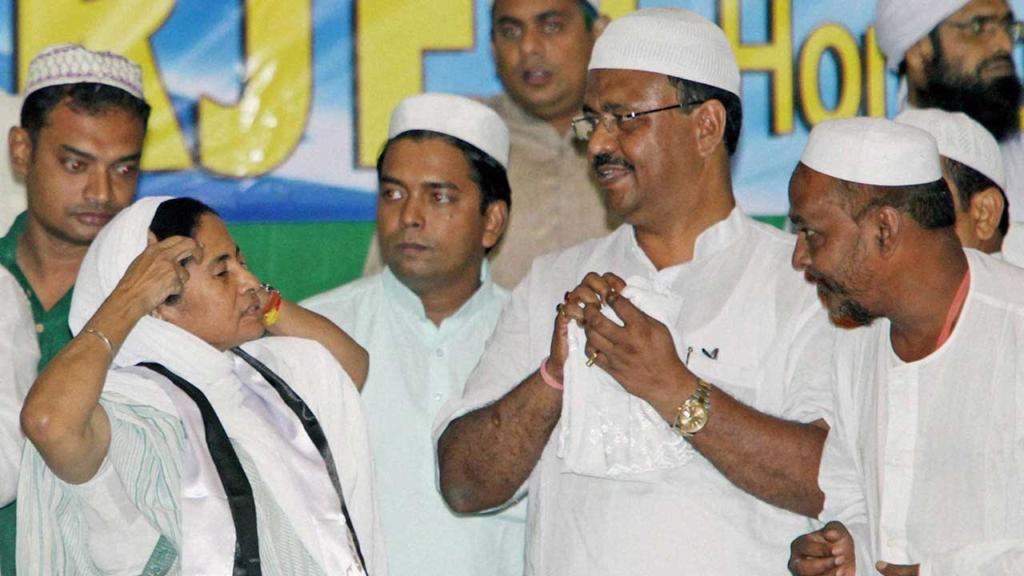Mamata Banerjee's Appeasement Politics: A Threat to National Security
Bengal Chief Minister Mamata Banerjee's latest move to appease the Muslim community through her skewed policies is nothing short of a blatant attempt to pander to vote banks at the expense of the state's welfare and security. Her eagerness to extend government benefits to students of khareji madrassas, known for their ties to hardline Islamists and radical ideologies, is deeply concerning and poses a grave threat to the state's secular fabric and national security.
Khareji madrassas, functioning as Islamic seminaries, have long been associated with promoting a regressive and intolerant form of Salafi Islam, often fueling radicalism and extremist ideologies. Instead of focusing on mainstream education and the development of all students, Banerjee's obsession with appeasement has led her to neglect the true needs of the state's youth.
The demand for bringing all madrassas under government control has been voiced for a long time, considering some unregistered madrassas have been breeding grounds for Islamist radicals and terrorists. The involvement of madrassas in the Khagragarh blast further amplified these concerns.
The Chief Minister's move not only disregards the potential dangers posed by these unregistered madrassas but also undermines the hard work and efforts of educational institutions teaching regular subjects under state or central boards of education. It is a slap in the face to those who strive for a balanced and inclusive education system, where students can grow academically and intellectually.
Furthermore, the proposed survey of khareji madrassas, supposedly to understand their functioning, appears to be nothing more than a smokescreen to avoid criticism and garner support from the Muslim community. The fact that influential clerics are vehemently opposing any attempt to bring these madrassas under government control should be a wake-up call to the Chief Minister.
 |
| All the 19 convicts had links with JMB and were using a madrasa to teach bomb making to several women and children, they also admitted to have influence over several other similar madrasas. |
The links between some of these madrassas and terror outfits like Jamaat-ul-Mujahideen Bangladesh (JMB) have been well-documented. Despite these alarming findings, Mamata Banerjee's administration has conveniently turned a blind eye, putting political gains ahead of the state's security and the safety of its citizens.
Moreover, the move to grant recognition to non-aided madrassas following the syllabus prescribed by the Deobandi movement is deeply troubling. The Deoband, known for its promotion of orthodox Islam and ties to Wahhabism, has inspired extremist outfits like Al-Qaeda and the Islamic State. By aligning with such institutions, the Chief Minister is risking the state's harmony and playing into the hands of radical elements.
The implications of Mamata Banerjee's appeasement politics go beyond the state's borders. It sends a dangerous message to the rest of the country, fostering divisions and encouraging religious segregation. The use of taxpayers' money to fund religious education in madrassas instead of promoting quality education for all is not only unjust but also detrimental to the spirit of a diverse and secular India. The pertinent question here is - why should taxpayers' money be directed towards religious education while the state grapples with pressing issues like the educational recruitment scam?
| Protests against teacher recruitment scam |
Bengal has been facing significant challenges in its educational system, including the recent recruitment scam that shook public trust. It's disheartening to witness funds being diverted to institutions that primarily focus on religious teachings while the state struggles to address critical issues within its mainstream educational institutions. The recruitment scam exposed corruption and irregularities in the selection process of teachers, raising serious concerns about the state's ability to manage its educational affairs effectively.
With limited resources and numerous pressing issues in the education sector, it becomes essential to allocate taxpayers' money judiciously, ensuring that it benefits the entire population, regardless of their religious affiliations. Focusing on religious education through madrassas, without simultaneously addressing the pressing needs of the mainstream educational system, will surely lead to further disparities and hinder overall progress.
In conclusion, the Chief Minister's constant appeasement policies in Bengal are a grave disservice to the state and the nation. They undermine the principles of a harmonious and inclusive society, and jeopardize national security by turning a blind eye to the potential breeding grounds of extremism. It is high time that the people of Bengal demand a more balanced and inclusive approach to governance, focusing on the welfare of all communities and the future of their children, rather than pandering to divisive agendas for short-term political gains.

Comments
Post a Comment